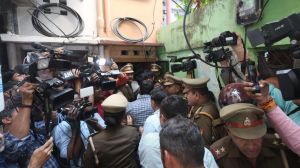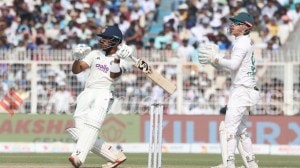Infosys Prize 2025 recognises research on Prakrit languages, DNA repair and renewable electricity
The Infosys Prize recognises leading work from researchers under 40 years, working across mathematics, physics, life sciences, economics, engineering and computer sciences, and humanities and social sciences.
 The winners are leading scientists working on Prakrit languages, algorithmic theory, market design, genomics, and evolution.
The winners are leading scientists working on Prakrit languages, algorithmic theory, market design, genomics, and evolution.
The Infosys Science Foundation announced the winners of the 2025 Infosys Prize in Bangalore on Wednesday. The winners are leading scientists working on Prakrit languages, algorithmic theory, market design, genomics, and evolution.
The annual award recognises leading work from researchers under 40 years, working across mathematics, physics, life sciences, economics, engineering and computer sciences, and humanities and social sciences. The prize comprises a gold medal, a citation, and a cash award of $100,000.
The winners of the 17th Infosys Prize
Mathematical sciences: Sabyasachi Mukherjee, Associate Professor at the School of Mathematics at Tata Institute of Fundamental Research, Mumbai. The award recognises his work in the field that has reshaped the understanding of conformal dynamics, an area of study that has important implications across physics, fluid dynamics, and data sciences.
Economics: Nikhil Agarwal, Paul A Samuelson Professor at MIT. The award recognises his work on developing market design for allocation mechanisms. It has given newer insights into policy design and implementation.
Humanities and social sciences: Andrew Ollett from the Department of South Asian Languages and Civilizations at the University of Chicago. The award recognises his expertise in languages across Sanskrit, Prakrit, Kannada, Tamil, old Javanese, and Chinese. One of his many works has explored the tandem between the cultural roles of Prakrit and Sanskrit.
Physical sciences: Karthish Manthiram, Professor of Chemical Engineering at the California Institute of Technology (Caltech). His work has contributed to demonstrating how renewable electricity can perform selective yet efficient synthesis of chemicals. These are fundamental to agriculture and industry.
Life sciences: Anjana Badrinarayanan, Associate Professor at the National Centre for Biological Sciences, Bangalore. Her lab focuses on understanding mechanisms of genome maintenance and repair. The award recognises her work that has revealed fundamental principles of how DNA damage gets repaired, shedding new light on evolution.
Engineering and computer sciences: Sushant Sachdeva from the Mathematical and Computational Sciences at the University of Toronto. The award recognises his work that has impacted many algorithmic challenges in modern society.







